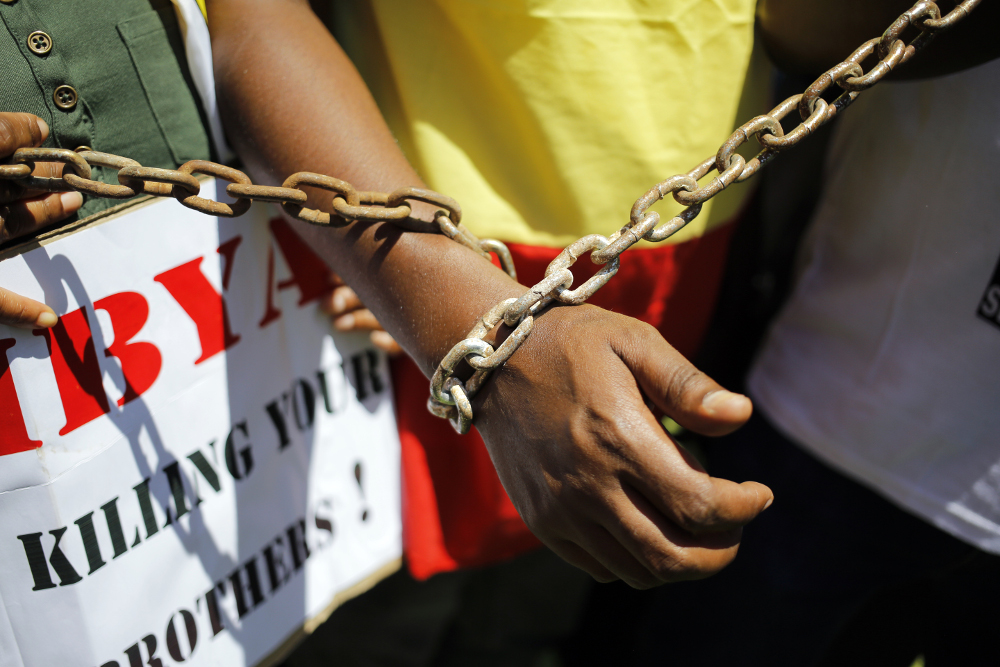
A protester in Pretoria, South Africa, chains himself as part of a protest highlighting the slave trade in Libya Dec. 12. (CNS/Kim Ludbrook, EPA)
A trio of Nigerian bishops condemned the enslavement of Nigerians who traveled to Libya for work, calling the practice a horrific abuse of human dignity.
Bishop Joseph Bagobiri of Kafanchan, retired Archbishop Alaba Job of Ibadan and retired Bishop Julius Adelakun of Oyo called on the Nigerian government to act on behalf of Nigerian nationals in Libya and elsewhere who have been victimized by modern-day slave traders.
They also suggested the government discourage Nigerians from traveling to other countries for work because of dangers posed by the illicit labor market.
Their comments came after Nigerian officials had repatriated 3,000 Nigerians from Libya through Dec. 4 following reports of inhumane treatment in the North Africa nation.
Bagobiri expressed concern that Nigerians were willing to pay as much as $1,400 to travel to Libya and other countries to seek "greener pastures."
"If each of such individuals had invested these amounts positively and creatively in Nigeria in viable business opportunities, they would have become employers of labor," Bagobiri told Catholic News Service. Instead, he said, they are "subjected to slavery and other forms of inhuman treatment by Libyans."
The bishop also urged government officials to correct misperceptions among young people that opportunities were better elsewhere.
"The Nigerian government should make them realize that there are more prospects for survival in Nigeria than we think exist in Europe and other places," Bagobiri said.
"In the midst of so much wealth and resources we have in this country," he added, "Nigerians should not become beggarly and only decide to fly out of Nigeria in search of the elusive greener pastures."
Advertisement
Adelakun echoed Bagobiri in urging the government to encourage young people to unite to build the Nigeria of their dreams through hard work and perseverance. He called for the government to provide job opportunities for youth, saying that would discourage them from leaving the country.
"Many Nigerians are traveling to the developed world to enjoy the development put in place by their governments, but we have refused to develop our own country," he told CNS. "Let us start to develop ours to make it attractive and conducive for living, so that foreign nationals will want to come."
For Job, the selling of Nigerians into slavery was "very horrific and really bad."
While acknowledging that there was nothing bad about relocating to another country, he warned young people to be aware of the conditions and challenges they are likely to face elsewhere as foreign nationals.
He decried the mistreatment of Nigerians that in some cases had led to the loss of life and called on the government to defend Nigerian nationals in Libya as a step to end slave trading.






